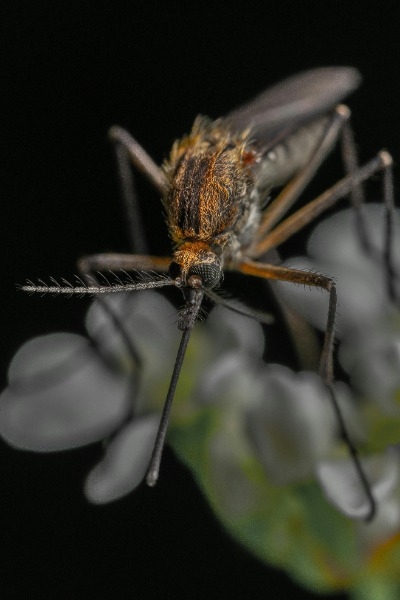Mosquito and Tick Illnesses a Concern in South Heartland Health District
September 16, 2025
Hastings, Nebraska – The district health department for Adams, Clay, Nuckolls and Webster counties is notifying residents to protect themselves from mosquito and tick bites.
South Heartland District Health Department (SHDHD) executive director Michele Bever reported an abundance of West Nile positive mosquitoes in Adams County, which means West Nile season is not yet over in south central Nebraska. Bever stated that seven collections of mosquitoes from three different sites around Adams County tested positive for West Nile virus. The collections of mosquitoes were trapped on August 26, 2025.
West Nile Virus is spread through the bite of an infected mosquito and anyone can get infected with the virus. Symptoms of West Nile illness are usually mild, including fever, headache, body aches, nausea, vomiting, and sometimes swollen lymph glands or a skin rash. However, symptoms may be more severe, require hospitalization, cause permanent neurological damage, and may result in death.
To date in 2025, a total of 21 cases of West Nile infection have been identified in Nebraskans through clinical positive lab test results. Cases occurred in residents living in eleven Nebraska health districts, including South Heartland District. Eleven of the Nebraska cases were neuroinvasive, meaning that the West Nile virus infected the brain or central nervous system of the affected individual, and eleven cases required hospitalization.
Exposure to tick bites is also a concern because of the serious illnesses they can carry. Across the state, 69 tickborne disease cases have been reported in 2025 and twenty-one of these cases have required hospital care. Bever said tick trapping in the health district has identified American dog ticks (Dermacentor species) and Lone Star ticks (Amblyomma species). The American dog tick can transmit tularemia and Rocky Mountain spotted fever. Lone Star ticks can transmit ehrlichiosis, tularemia, Heartland virus, Bourbon virus, and Southern Tick-Associated Rash Illness (STARI).
Bever emphasized that South Heartland residents have been affected by illnesses carried by ticks and mosquitoes. “In the last decade, we’ve had residents diagnosed with West Nile illness, Ehrlichiosis, Rocky Mountain spotted fever (Rickettsiosis), and Lyme disease,” she said. “It’s so important to make sure you and your loved ones are protected from exposure to these disease carriers.
“Make sure to ‘Fight the Bite’ and reduce your risk of getting mosquito and tick bites by using an effective repellent and wearing long-sleeved shirts and long pants, especially when you are outdoors in tick habitats or between dusk and dawn when mosquitoes are most active,” Bever said.
For preventing exposure to ticks, the health department recommends treating clothing and gear with products containing 0.5% permethrin. Permethrin can be used to treat boots, clothing and camping gear, and remains protective through several washings. Alternatively, you can buy permethrin-treated clothing and gear.
Mosquito and tick trapping and testing, called vector surveillance, is an annual activity in Nebraska health departments. Working with the Nebraska Department of Health and Human Services (NDHHS), SHDHD traps mosquitoes every other week, beginning in late May and typically ending in late September or early October. Ticks are collected by NDHHS in early summer. The trapping activities help the health department and NDHHS know which types of ticks and mosquitoes are found in the health district and across Nebraska (and, therefore, what diseases residents might be exposed to), and whether the distribution of these disease-carriers is changing over time.
For more information, visit www.southheartlandhealth.ne.gov or call 1-877-238-7595.
##


 Launch the media gallery 1 player
Launch the media gallery 1 player